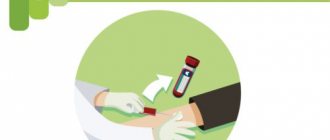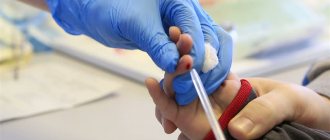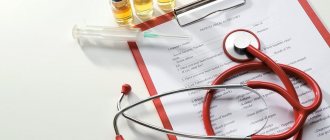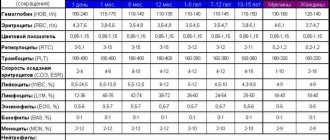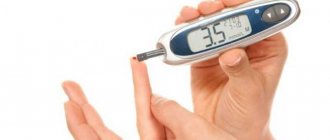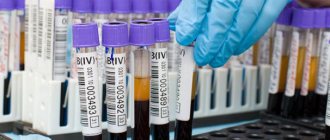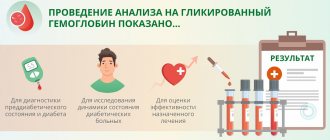Home — Rules for preparing a patient for laboratory and ultrasound examinations — Preparation for blood tests
Food restrictions | Capillary blood | General clinical analysis | Biochemistry | Coagulogram | Hormones | Infections | Glucose tolerance test | TSH | Vitamin D
Blood counts can change significantly throughout the day, so it is recommended to take tests in the morning. For this period, reference intervals for many laboratory parameters have been calculated. This is especially important for hormonal studies.
- All blood tests are done before radiography, ultrasound and physiotherapeutic procedures.
- Do not smoke 2 hours before donating blood.
- For 2-3 days, do not overeat, especially fatty foods, avoid alcohol, intense physical activity, and also do not visit the bathhouse or sauna.
Food restrictions:
- On an empty stomach: at least 4 hours after the last (not large!) meal.
- Strictly on an empty stomach: at least 8 hours after the last meal. In newborns and children in the first months of life, blood sampling is allowed no earlier than 2 hours after eating.
- Fasting: no food intake for at least 12-14 hours.
- Drinking regime . Drinking water does not affect blood counts, so drinking water is allowed (not mineral, non-carbonated). Juice, tea, coffee are prohibited.
What to eat before donating blood
For two days, do not drink alcoholic beverages; the day before, exclude fatty, fried, spicy, smoked, dairy products, eggs, butter from your diet; it is recommended - sweet tea, jam, bread, crackers, dried cereals, boiled cereals, pasta in water without oil, juices , fruit drinks, compotes, mineral water, vegetables, fruits (except bananas).
Compliance with these requirements is especially important if you are donating platelets or plasma. Neglecting them will not allow high-quality separation of your blood (separation of the necessary components) and will make donation impossible.
Hormones
Blood collection is carried out strictly on an empty stomach: at least 8 hours must pass from the last meal (preferably at least 12 hours). You are allowed to drink water (non-mineral, non-carbonated). It is forbidden to drink juice, tea, coffee. 2-3 days before the test, do not overeat, especially fatty foods. Avoid alcohol, intense physical activity, and do not visit the sauna or bathhouse.
- On the day of blood collection, avoid taking medications; if withdrawal is not possible, inform the laboratory.
- When studying hormones over time, it is advisable to take blood samples at the same time of day.
- Some hormones need to be taken by women on certain days of the menstrual cycle. This information can be obtained from your doctor.
Attention!Q Blood collection for cortisol is carried out strictly on an empty stomach, strictly in the interval from 8:00 to 11:00 (the exact time of venipuncture is indicated).
Taking blood from children under 14 years of age
Psychological preparation of the child
- The main requirement for mom is to remain completely calm. Children, especially toddlers, feel their mother’s mood very keenly and also begin to get nervous if she is afraid of the upcoming procedure. With a child who has already reached preschool or school age, discuss what will happen. You should not scare him, especially if he is donating blood for the first time. You can also warn that the child is likely to experience discomfort.
- Make sure your child is not bored before the blood is drawn. Take with you a book, his favorite toy, a coloring book with markers - depending on the age of the child. This will not only take up his time, but will also not allow him to concentrate on the fear of the upcoming procedure.
- Decide whether you need to be present in the doctor's office during the test. Of course, it will be needed if the child is very small, but for some schoolchildren, even in the lower grades, the presence of parents can only interfere and provoke crying or protest. Focus on the child's psychological characteristics.
- During the blood collection procedure, small children should be held in your arms. If a child feels the warmth and protection of his mother, he reflexively calms down even in an unfamiliar and frightening environment.
- It is advisable to begin drawing blood not immediately after entering the treatment room. You need to give the baby a couple of minutes to get acquainted with the situation and the stranger who will take his hands.
Preparation before donating blood
- Remember that the best time to take a blood test is in the morning; the standards for all tests were developed specifically for the time interval from 8 to 11 am.
- Donating blood for testing should be strictly on an empty stomach. At least 8 hours must pass between the last meal and the blood draw. It is quite difficult to adhere to this rule with children, but it is quite possible. Drinking juices, tea, or eating cookies in the morning is prohibited, as this can significantly distort the results. You can only drink water. Take something tasty with you so that you can eat immediately after leaving the treatment room.
- The child's diet 1-2 days before the blood test should exclude fatty and fried foods and sweets.
- For better blood filling of the vessels, it is advisable to give the child 100-200 ml of water to drink 30 minutes before blood sampling (for children from 1 year).
- After the analysis, think about how you can please your child for good behavior. A small surprise gift will help smooth out the unpleasant impressions of the hospital.
Glucose tolerance test
Attention: A glucose tolerance test is prescribed only after consulting a doctor. This study is not performed for patients with type 1 diabetes mellitus.
Blood collection is carried out in the morning, after fasting: at least 12-14 hours must pass from the last meal.
- Before performing the glucose tolerance test, follow a diet for 3 days (no more than 150 grams of carbohydrates per day), exclude intense physical activity, and do not visit the bathhouse or sauna.
- 3 days before the test, stop thiazide diuretics, contraceptives and glucocorticoids (in consultation with your doctor).
- Do not drink water or smoke during the study. Repeated blood sampling is carried out 1 hour and 2 hours after the “load” of glucose.
Selected studies
General rules apply to all tests, but some tests require special preparation and additional restrictions. It is very important to strictly follow the recommendations below, since only in this case will reliable research results be obtained.
- General blood analysis
- Urea
- Cholesterol, lipoproteins
- Glucose
- Glucose tolerance test
- Haptoglobin
- Alpha-2-macroglobulin
- FibroTest, FibroMax, SteatoScreen
- Hormonal studies
- Thyroid hormones
- Sex hormones
- Prolactin, Macroprolactin
- Inhibin B
- Adrenaline and norepinephrine
- Renin, angiotensin
- Aldosterone
- ACTH, cortisol
- Insulin, C-peptide
- Gatrin 17, Gastrin-17 stimulated, pepsinogen I, pepsinogen II, H. Pylori IgG
- Protein C, Protein S, von Willebrand factor
- PSA (total, free)
- CA-125 ovaries
- Tests for infections
General blood analysis
Blood is donated in the morning on an empty stomach (or in the afternoon/evening hours, 4-5 hours after the last meal). 1-2 days before the test, exclude high-fat foods from your diet.
Urea
1-2 days before the study, you must follow a diet: stop eating foods rich in purines - liver, kidneys, and also limit meat, fish, coffee, tea in your diet as much as possible. Intense physical activity is contraindicated.
Cholesterol, lipoproteins
Two weeks before the study, it is necessary to discontinue drugs that lower blood lipid levels, unless the goal is to determine the lipid-lowering effect of therapy with these drugs.
Glucose
When donating blood for glucose (in addition to the basic requirements for preparing for tests), you should not brush your teeth, chew gum, or drink tea/coffee (even unsweetened). A morning cup of coffee will dramatically change your performance. Contraceptives, diuretics and other medications also have an effect.
Glucose tolerance test
It is carried out only if there are preliminary results of determining glucose on an empty stomach, without load. The glucose content in blood plasma is determined on an empty stomach and 2 hours after a glucose load.
It is necessary to follow a normal diet (with a carbohydrate content of more than 125-150 g per day) and adhere to the usual physical activity for three days before the study. The study is carried out in the morning on an empty stomach after an overnight fast for 12-16 hours (during this time you should not smoke or drink alcohol).
During the study, the patient should lie or sit quietly, not smoke, not be overcooled, and not engage in physical activity.
It is not recommended to conduct research after and during stress, after operations and childbirth, during inflammatory processes, alcoholic cirrhosis of the liver, hepatitis, during menstruation, and in gastrointestinal diseases with impaired glucose absorption.
Before the test, it is necessary to exclude medical procedures and medications (adrenaline, glucocorticoids, contraceptives, caffeine, thiazide diuretics, psychotropic drugs and antidepressants).
Discontinuation of medications is carried out only after preliminary consultation of the patient with a doctor.
A glucose tolerance test is not performed for children under 14 years of age.
For pregnant women, a glucose tolerance test is recommended to be carried out at 24-28 weeks, this allows identifying with accuracy up to 98% of women with gestational diabetes.
Haptoglobin
Before the study, it is necessary to exclude the following drugs: dapsone, methyldopa, sulfasalazine, estrogens, oral contraceptives, tamoxifen, androgens.
Alpha-2-macroglobulin
You must abstain from eating meat for three days before the test.
FibroTest, FibroMax, SteatoScreen
Blood collection is carried out strictly on an empty stomach in the morning. It is not recommended to take ascorbic acid 1-2 days before the test; it is also necessary to exclude medications and foods that cause artificial coloration of the serum (carrots, oranges).
To conduct a FibroMax study, you must indicate your exact weight and height.
Hormonal studies
Blood for hormonal studies must be donated on an empty stomach in the morning, between 8 and 11 am. If this is not possible, blood can be donated for some hormones 4-5 hours after the last meal in the daytime/evening hours (except for those studies for which blood must be donated strictly in the morning). Before taking tests, you should consult a specialist doctor.
1-2 days before the test, exclude high-fat foods from the diet; the last meal should not be large. 1 day before the study, psycho-emotional and physical comfort (calm state without overheating and hypothermia) is necessary.
Thyroid hormones
During the initial check of thyroid hormone levels, discontinue medications that affect thyroid function 2-4 weeks before the test (after consultation with your doctor). When monitoring treatment, exclude taking medications on the day of the study and be sure to note this on the referral form (also note information about taking other medications: aspirin, tranquilizers, corticosteroids, oral contraceptives).
Sex hormones
In women of reproductive age, the results of hormonal studies are influenced by physiological factors associated with the phase of the menstrual cycle. During the examination for sex hormones, you need to indicate the phase of the menstrual cycle. Hormones of the reproductive system must be taken strictly on the days of the cycle:
- LH, FSH - 2-3 days of the cycle;
- Estradiol - 2-3 or 21-23 days of the cycle;
- Progesterone - days 21-23 of the cycle, with a 28-day cycle. If the cycle is more or less than 28 days, then 7 days before the expected menstruation.
- 17-OH-progesterone, Testosterone - 2-3 days;
- Dihydrotestosterone, Androstenedione glucuronide, Free testosterone, Androstenedione, Sex hormone binding globulin, Anti-Mullerian hormone - on days 2-3 of the cycle.
Prolactin, Macroprolactin
On days 2-3 of the menstrual cycle, donate blood in the morning, at rest; before the examination, avoid palpation of the mammary glands.
Inhibin B
For women, the study is carried out on the 3rd day of the menstrual cycle. 3 days before taking blood, avoid intense sports training. The study should not be performed during any acute illness. Do not smoke 1 hour before taking blood.
Adrenaline and norepinephrine
8 days before the study, exclude medications: salicylates, β-blockers. 1 day before the test, you must refrain from heavy physical activity, exclude alcohol, coffee, tea, B vitamins, and bananas.
Renin, angiotensin
Before the study, exclude the use of estrogens (1-2 months before), diuretics (3 weeks before), and antihypertensive drugs (one week before). Blood collection should be carried out in a sitting or standing position.
Aldosterone
In consultation with your doctor, 8 days before the study, discontinue antihypertensive drugs, β-blockers, laxatives, corticosteroids, diuretics, and antidepressants. 3 weeks before the study, discontinue aldosterone antagonists.
ACTH, cortisol
Due to the fact that ACTH and cortisol are stress hormones, you need to calm down and relax for 20 minutes before donating blood. Any stress causes an unmotivated release of these hormones into the blood, which will lead to an increase in this indicator.
The level of these hormones changes cyclically throughout the day, so the most informative results are studies conducted in the morning before 9 o’clock.
Insulin, C-peptide
Donate blood strictly in the morning.
Gastrin-17, Gastrin-17 stimulated, pepsinogen I, pepsinogen II, H. Pylori IgG
Blood must be donated for testing on an empty stomach after a 12-hour fast.
1 week before the study, refrain from taking medications that affect gastric secretion: Pepcedin, Zantac, Nizax, Ranimex, Esofex, Losec, Somac, Ranixal, Ranil.
1 day before the study, refrain from taking medications that neutralize hydrochloric acid secreted by the stomach: Alsucral, Balancid, Prepulsid, Metropam, Librax, Gaviscon.
If you have difficulty stopping medications, be sure to inform your doctor.
3 hours before donating blood, refrain from smoking.
Protein C, Protein S, von Willebrand factor
Do not conduct the study during acute periods of illness and while taking anticoagulant drugs (at least 30 days must pass after discontinuation). Biomaterial must be submitted for research on an empty stomach. At least 8 hours must pass between the last meal and blood collection. Women are not recommended to conduct hemostasis tests during menstruation.
PSA (total, free)
After a prostate biopsy and prostate massage, blood can be donated for PSA determination no earlier than 2 weeks later. The post-surgical PSA level is determined no earlier than 6 weeks after the intervention.
CA-125 ovaries
It is more informative to take it 2-3 days after menstruation.
Blood tests for infections
1-2 days before the test, exclude high-fat foods from your diet. 2 days before donating blood for viral hepatitis, exclude citrus fruits, orange fruits and vegetables from the diet.
The results of tests for the presence of infections depend on the period of infection and the state of the immune system, so a negative result does not completely rule out infection. At an early stage of the disease, seroconversion occurs (absence of antibodies during the acute period of the disease).
In doubtful cases, it is advisable to re-test after 3-5 days.
A blood test for the presence of IgM class antibodies to infectious agents should be carried out no earlier than 5-7 days from the moment of illness, and IgG and IgA class antibodies no earlier than 10-14 days. This is due to the timing of the production of antibodies by the immune system and their appearance in the blood in the diagnostic titer.
Preparing for a thyroid-stimulating hormone (TSH) test
TSH levels are the most sensitive test for assessing thyroid function. However, it remains the most frequently deviating from the reference interval among all hormonal studies. To obtain reliable results, in addition to the general rules for preparing for laboratory tests, it is important to follow the rules below:
- The TSH level changes significantly during the day: its highest concentration is determined in the morning, and its minimum in the evening. You should donate blood at the same time, especially in case of repeated tests, since the time of blood donation plays an important role in the interpretation of the TSH level.
- In the case of thyroid hormone replacement therapy, it is necessary to take the drug after drawing blood for testing. Taking thyroxine and iodine the day before the test does not affect the TSH concentration. It is advisable to carry out repeated studies of TSH levels in order to monitor therapy no earlier than 6 weeks after changing the dose or type of drug.
- It must be remembered that the TSH result may be distorted by the effects of medications taken or the products of their metabolism. Before donating blood for analysis, you should consult your doctor about the possibility of limiting the intake of medications during the period of preparation for the study. It is recommended that you stop taking medications, including dietary supplements, before the study. If it is impossible to stop taking medications, you should provide the name of the drug and the time of its last use when donating blood.
- The thyroid gland is associated with the work of many organ systems, disorders in which can affect the secretion of the hormone: acute and chronic stress, acute infectious diseases, disorders of lipid and vitamin metabolism, leading to excess cholesterol, homocysteine, as well as disturbances in sleep patterns and wakefulness at night, which disrupt the normal rhythm of TSH secretion. The influence of these conditions must be taken into account when interpreting the results if it is not possible to postpone the study to a later date.
- Different research methods may be used in different laboratories, therefore, in order to correctly evaluate the research results, it is necessary to conduct research in the same laboratory and on the same analytical system.
Taking blood from children from 1 day to 12 months
- Try to schedule blood sampling for infants during the break between feedings, closer to the second feeding.
- 30 minutes before the procedure, the child should drink 50 ml of the liquid that you usually give him.
- When taking blood, the child’s hands must be warm. If you come from outside or the room is not so warm, the child’s hands need to be warmed. This is a mandatory and very important condition, because the amount of blood that will be received by the health worker depends on its fulfillment.
- Immediately before blood is drawn, the child should be positioned so that he is as comfortable as possible. A couple of minutes should pass before the nurse begins drawing blood. This time will be enough for the baby to calm down and get used to the environment a little.
Can drinking water affect research results?
If a general blood test is performed, the amount of liquid taken, if it is clean drinking water without dyes and sweeteners, does not matter. In this regard, even a large amount of it will not affect the results. However, in a number of other cases the situation is different - for example, during a biochemical study, as well as tests to establish cholesterol and hormone levels, it is forbidden to drink more than a couple of sips. Otherwise, the blood may become more liquid, which in turn will affect the performance.
This is due to the fact that water consists of chemical elements, therefore, under certain conditions it creates an error, including when studying hormonal parameters. The doctor must decide to prohibit the intake of a certain amount of water, based on the type of examination being planned and its direction.
General rules for preparing for hair analysis
Scalp hair is the most preferred biomaterial for research. Hair from other areas of the body should only be used if there is no hair on the head.
- Stop using hair treatments 2 weeks before submitting your hair for analysis. Dyed, bleached, permed hair is not suitable for research. You must wait until enough hair has grown back to collect a hair sample.
- Hair should be clean and dry (it is advisable to wash your hair no later than 24 hours before collecting hair). Before the study, it is not allowed to apply any cosmetic or medicinal products (creams, oils, gels, etc.) to the hair.
- Avoid professional contact of hair with external contaminants (welding, mining) between shampooing and hair collection.
- Before collecting hair, thoroughly wash and dry your hands and scissors.
General rules for preparing for stool tests
To collect and transport stool, the patient is given a sterile plastic container with a spoon. The container may contain a nutrient medium (peptone) or a preservative, depending on the type of study.
The release of helminth eggs and protozoan cysts in feces directly depends on the life cycle of the parasites. For this reason, the test results may be negative even if infection is present. For the most reliable results, three stool examinations are recommended with an interval of 3–7 days.
Types of blood tests
Three main types of blood tests are common: general, biochemical, and sugar testing.
- General analysis allows you to obtain information on several parameters at once - it can include from 5 to 24 studied indicators. These include hemoglobin, red blood cells, platelets and leukocytes.
- Biochemical analysis allows you to assess the functioning of internal organs and the state of the metabolic process.
- Using a sugar test, the level of glucose in the blood is established, which is considered a key indicator in the diagnosis and subsequent treatment of diabetes.
Blood tests for hormones, AIDS or HIV infection are also common.
General rules for preparing for urine tests
Single sample urine tests
Depending on the required laboratory tests, the first, middle, third (usually morning) or “one-time” (independent of the collection sequence) portion of urine can be used for analysis. Urine for testing is collected by the patient in a sterile plastic container.
To obtain reliable results, it is recommended to comply with the following conditions:
- It is not recommended to consume on the eve of the study (10–12 hours before): alcohol, spicy, salty foods, foods that change the color of urine (for example, beets, carrots);
- If possible, avoid taking diuretics;
- Before taking the test, perform a thorough toileting of the external genitalia;
- For women, the study is recommended to be carried out before menstruation or 2 days after its end;
- The PCR method for diagnosing urogenital infections in urine is suitable exclusively for men; in women, this diagnostic method is much inferior in its information content to the study of a urogenital smear and is not used.
Daily urine tests
urine sample is all urine collected over a 24-hour period.
Daily urine is most often collected by the patient independently at home using a special kit for collecting and transporting a daily urine sample. Before the collection begins, the patient is given the necessary instructions about the collection procedure and the necessary measures to prepare for the test.
To obtain reliable results, it is recommended to comply with the following conditions:
- It is not recommended to consume on the eve of the test (10–12 hours before): alcohol, spicy, salty foods, foods that change the color of urine (for example, beets, carrots).
- If possible, avoid taking diuretics.
- Before taking the test, perform a thorough toileting of the external genitalia.
- For women, testing is not recommended during menstruation.
